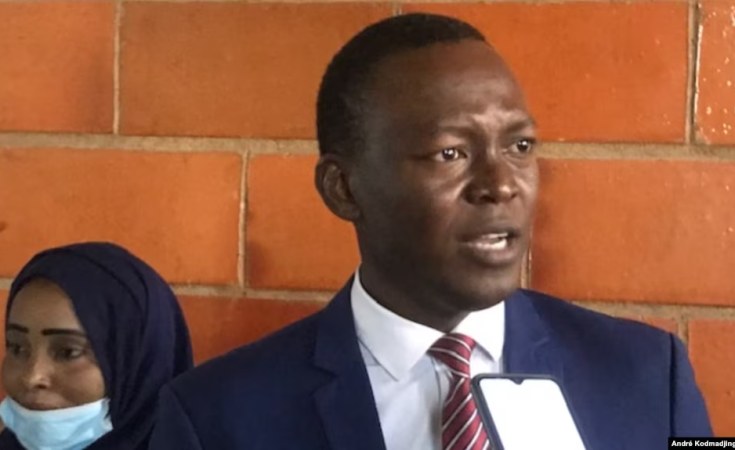Yaounde, Cameroon — Chad's exiled pro-democracy opposition leader Succes Masra said increasing threats to civil liberties by Chad's Transitional Military Council make it impossible for him to return from exile on October 18 as announced.
He said hundreds of citizens arrested for protesting against the military should be released as an indication of good faith before his return.
Masra, president of Chad's main opposition party, The Transformers, said the political and security situation in his country remains tense and he plans to delay his trip to Chad until November to avoid any risk to those who were preparing to greet him on his arrival.
On Monday, Masra said he has asked Democratic Republic of Congo President Felix Tshisekedi to tell Chad's Transitional Military Council to stop human rights violations, including arbitrary arrest, detention and torture of opponents.
Central Africa's regional bloc, the 11-member Economic Community of Central African States, or CEEAC, appointed Tshisekedi as a facilitator for the political transition process in Chad in October 2022 after scores of civilians were killed in protests against Chad's military leader Mahamat Idriss Deby.
Announcing his decision to delay, Marsa's message was shared on social media, including Facebook and Whatsapp, and broadcast by several media outlets in Chad.
He said by violating resolutions of the August 2022 to October 2022 Inclusive and Sovereign National Dialogue, Deby is openly indicating his unwillingness to hand power to civilian rule by November 2024 as decided during the dialogue. Masra said by not releasing several hundred civilians arrested in October 2022 for protesting Chad's military leadership, Deby indicated he has a disregard for human rights.
Masra fled Chad to the United States in October of last year, through neighboring Cameroon. He fled after the central African state's security forces killed 50 people, injured 300 and arrested several hundred during pro-democracy protesters.
Chad's state TV for several weeks showed videos of thousands of supporters preparing to welcome Masra.
The government of the central African state said Masra was to arrive in Chad on October 18 and take part, along with civil society groups, government ministers, the military and opposition leaders, at commemorative activities marking the first anniversary of the Inclusive and Sovereign National Dialogue on Oct. 20, 2023. The dialogue ended on October 20 last year.
Secondary school teacher Mahamat Ali, who is 32 years old, is a Masra supporter. He said Masra's return from exile in the U.S. should have encouraged many scared civilians to protest in towns and villages across Chad for the military junta to respect promises of providing water, electricity, and good roads as it develops Chad while preparing a return to constitutional rule in 2024.
The exiled pro-democracy opposition leader said he is calling on civilians to come out in Chad's capital N'Djamena from October 18 to 20, for what he said will be a true national dialogue. His message was broadcast on his Facebook page and over several radio and TV stations in Chad. He did not give details on what the dialogue would look like, but said it will indicate how unpopular Chad's military government has become since Mahamant Idriss Deby took over from his father Idris Deby Itno on April 21, 2021, and continued impunity and violation of democratic norms.
Last week, Deby said he was preparing a return to democratic rule and congratulated the military government he leads for providing drinkable water, constructing and equipping hospitals and primary schools, and dismantling many armed groups for a gradual return to peace in Chad.
Deby called on all opposition leaders, rights groups and disgruntled civilians wherever they are to have confidence in the peace process and join the military government to build peace for a return to democratic rule.
Restoring trust will not be easy.
In 2022, rights group Amnesty International reported that an end to violations and transition to democratic governance in Chad will require strong international pressure from Chad's regional and international partners and countries like the United States, France, Germany, Qatar and institutions such as the European Union, the African Union and the Economic Community of Central African States, or ECCAS.


